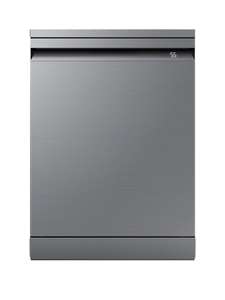
- Home
- Home & Living
- Home Appliances
- Dishwasher

Dishwasher Deals & Offers
3 active deals7,773 commentsAll Dishwasher discounts and offers overview - April 2024

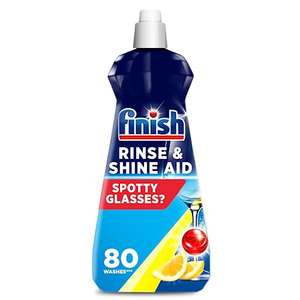
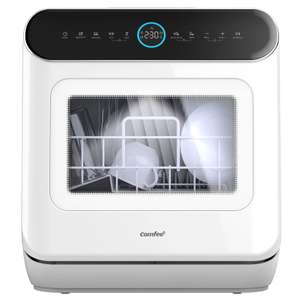
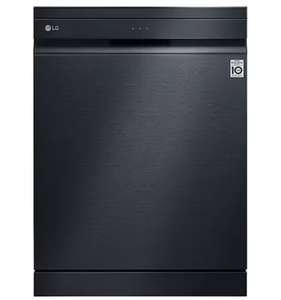

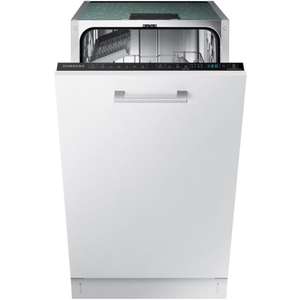
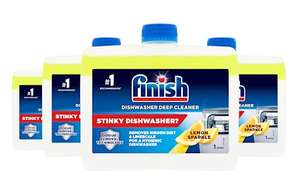
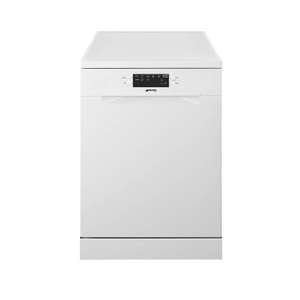
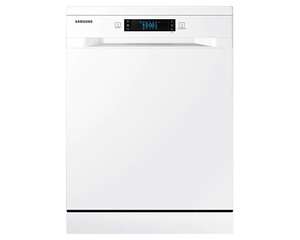
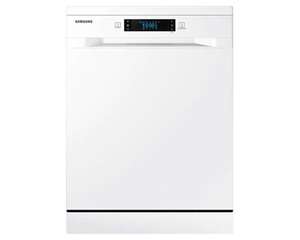
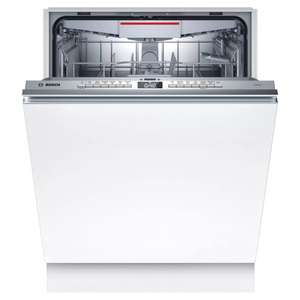
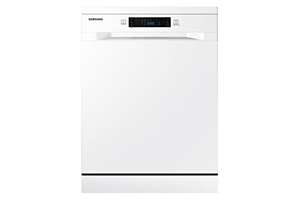
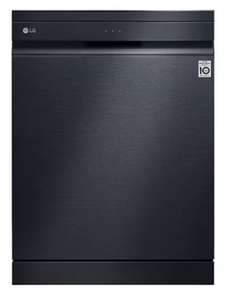
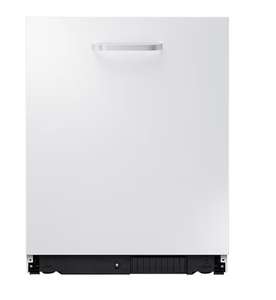
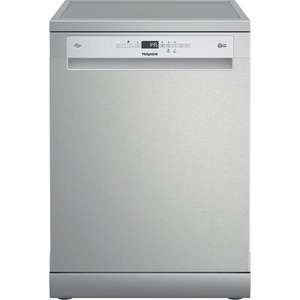
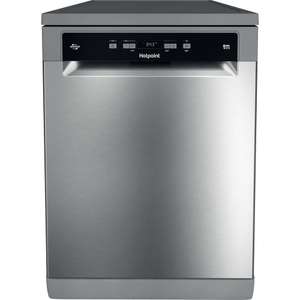
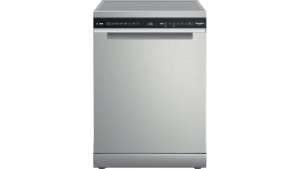
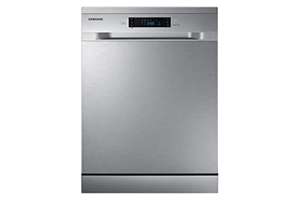
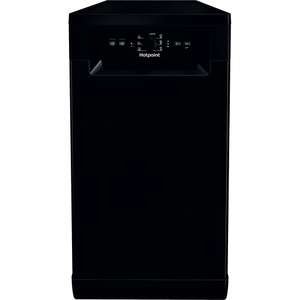
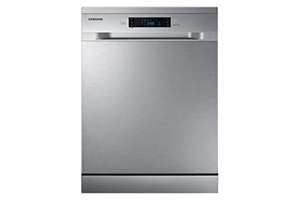
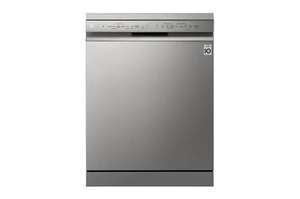
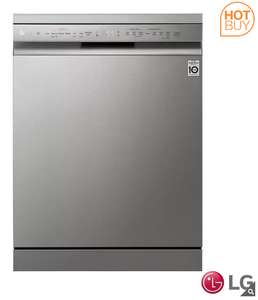
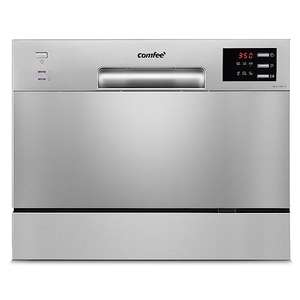
![Tefal Easy Fry Dual/Double Basket Digital Air Fryer, 2700w 2 Drawers, 8.3L (5.2l/3.1L) 8in1, Dishwasher Safe Baskets - [Prime Exclusive]](https://images.hotukdeals.com/threads/raw/KAJdw/4214076_1/re/300x300/qt/60/4214076_1.jpg)
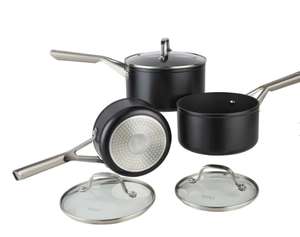
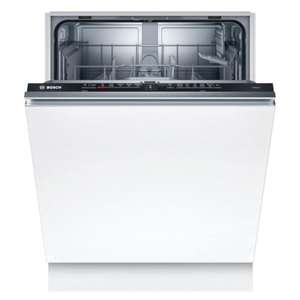
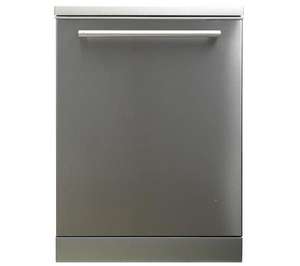
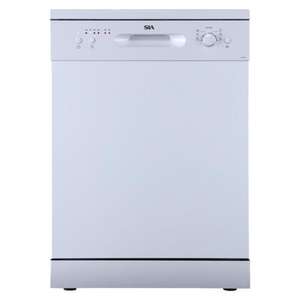
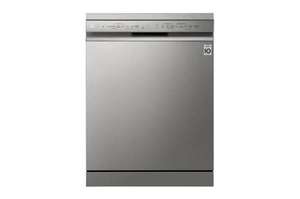
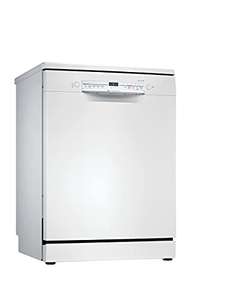
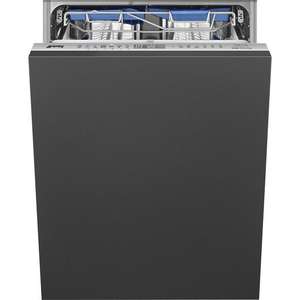
Dishwashers: An Essential Appliance for Clean Dishes
It seems like ancient history these days but as recently as thirty years ago, most people washed up their dinner plates by hand. It may have been bad news for washing up liquid manufacturers, but nowadays, automatic dishwashers can handle almost any stains and dirt, leaving plates, cutlery and pans ready to use straight away. Without them, using our kitchens would be a whole lot more time consuming and tiring.
However, dishwashers aren’t a small investment. They are sophisticated, expensive pieces of equipment with complex specifications and plenty of varieties. This buyer’s guide will help you find one that meets all of your needs as well as pointing toward the best dishwasher deals.
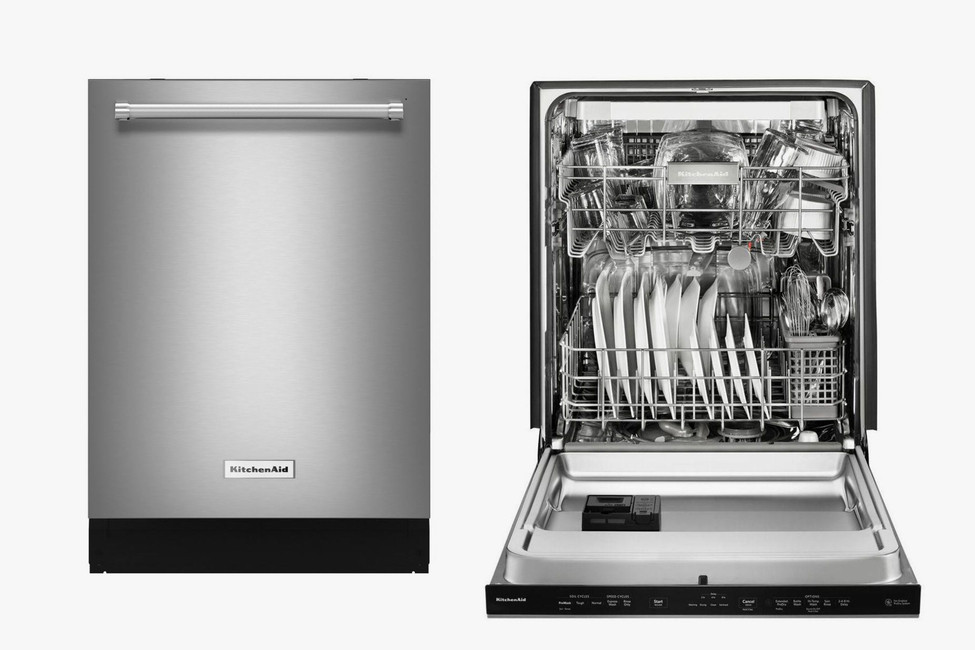
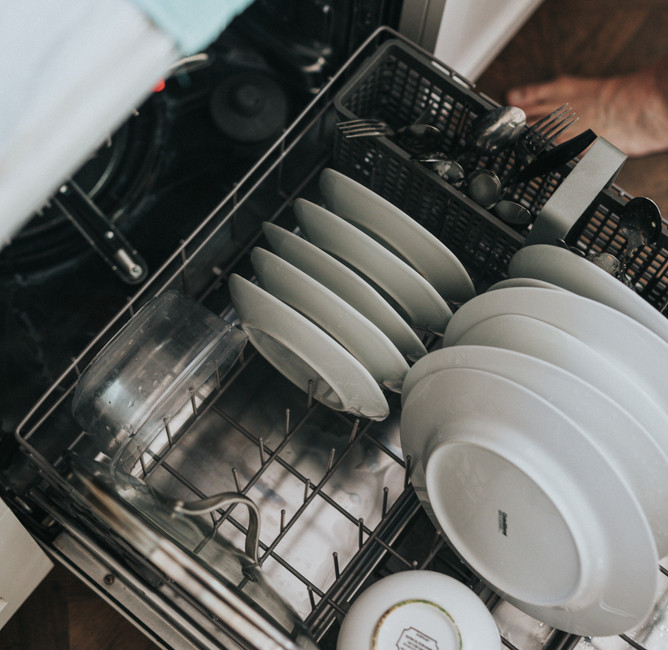
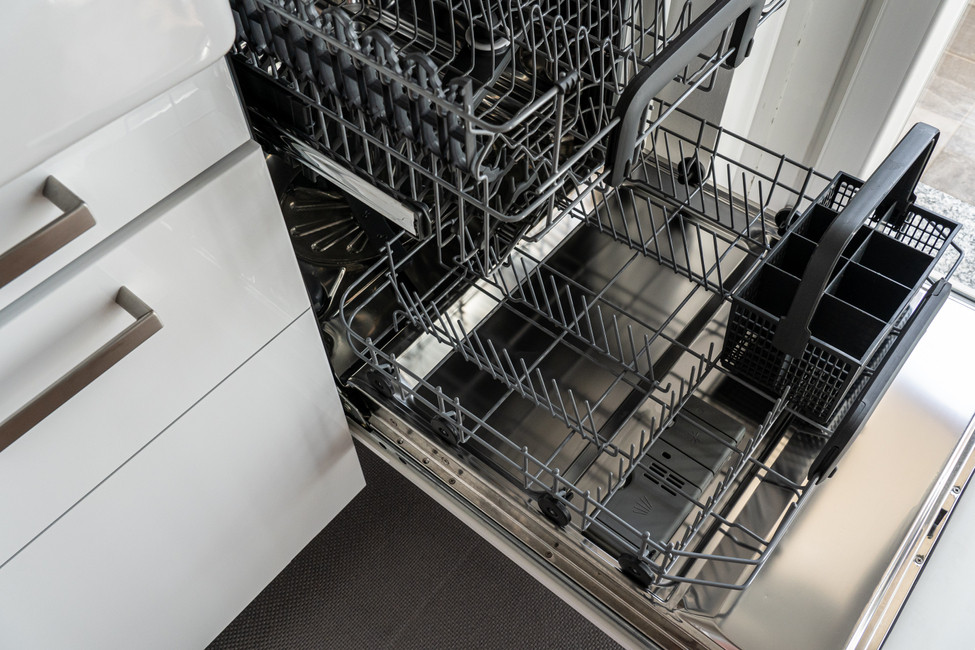

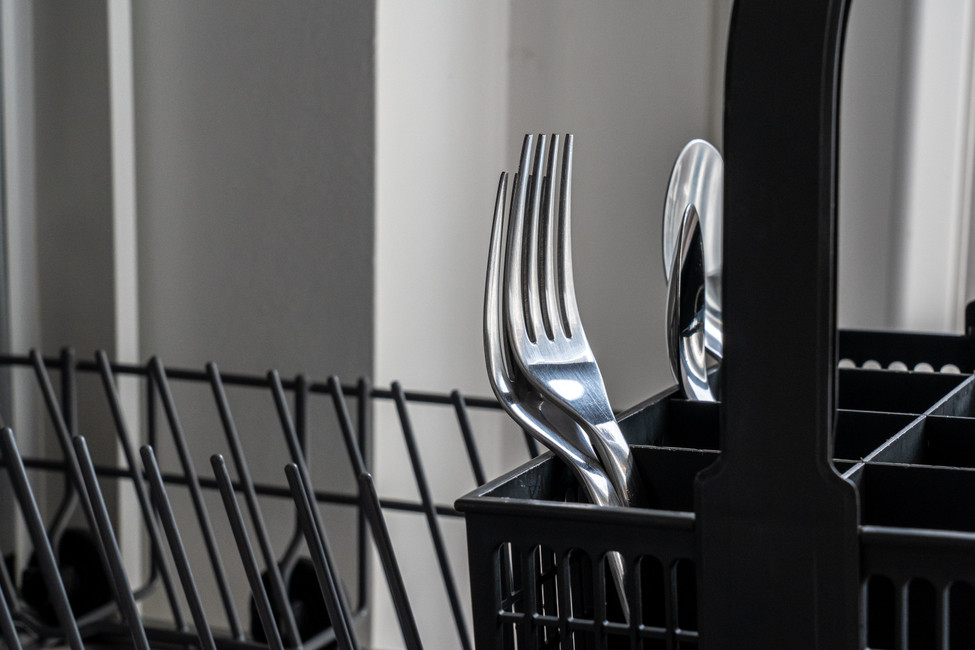
Key Dishwasher Features
When you search for dishwashers at the hotukdeals listings, you’ll come across lists of specifications, some of which are extremely important. Here’s how to decode and interpret the most important:
- Dimensions
Often, this is the most important measure. Dishwashers tend to come in standard measurements. In the UK, this is a base of 60 x 60cm, and a height no more than 84.5cm. Anything larger, and you’ll struggle to fit your machine into ordinary kitchen alcoves, although some integrated models come with irregular dimensions to suit particular spaces. You can also find Slimline dishwasher models that tend to be 45cm wide, so you should be able to find one that fits your kitchen.
- Energy Efficiency
In the UK, you’ll find that dishwashers are graded like school essays, from lowly Cs to stellar A+++. Never go for a B or C rated device. These are becoming completely outdated and their high running costs will outweigh any savings on the device itself. Instead, always try to go for A+ or A++ rated machines.
- Water Consumption
All dishwashers consume large amounts of water, but some consume more than others, and this can lead to higher or lower running costs. Again, water consumption is graded alphabetically, so opt for A rated devices (which use around 15 litres for a single wash, compared to between 40 and 150 litres for washing the same amount in a sink).
- Capacity
Even though their dimensions tend to be fairly similar, dishwasher capacities can vary. They almost always use the term “place setting” to describe their capacity, which corresponds to a plate, knife, fork, spoon, cup and saucer and two bowls (so, more than you might think). Between 8 and 12 place settings is adequate.
- Cleaning Rating
A measurement of how well the dishwasher removes grease and food waste from the items placed inside it. As with efficiency, this is graded, with A at the top and G right at the bottom (don’t think about anything lower than a B).
- Drying Performance
Another key metric, drying performance relates to how well the dishwasher dries the items inside it. A good rating means less work when you remove items, which can be extremely annoying, having shelled out hundreds of pounds for a dishwasher to do the job for you.
- Noise Levels
Dishwashers are noisy machines, or at least they can be. The very best models have found ways to dampen the noise they generate, reducing their internal vibrations and running, if not silently, at very low noise levels. Noise is measured in decibels and a good noise rating should be around 30-45. Don’t accept anything above 50 these days. Noise isn’t annoying, it’s often a sign that the machine is operating inefficiently and that it may not last longer than a year or two.
- Racks and Storage
Always check the range of racks, boxes and shelves on offer when you buy a dishwasher. Every model is subtly different, with varying racks for mugs, glasses, plates, pans, sharp items and pots.
- Extra Features
Dishwasher listings will always have any extra features listed, many of which may sound exciting, but should come as standard. For instance, “fast cycle” just means an express wash setting. There should be an economy cycle to save water and electricity, intensive washes for caked on dirt, half-load options for smaller loads and options for delicate items like glass. Double check that these cycles are included though, as you can’t take anything for granted – particularly with older, lower-spec models.
- Basin Material
The basin is the interior lining of the dishwasher and what it is made from makes a big difference. The best dishwashers come with stainless steel basins, while cheaper models will feature plastic basins. Steel basins last far longer and could avoid the need for replacement after a couple of years, saving you money.
- Filters
On lower-spec dishwashers, dirt and grease filters will be present, but they may need to be emptied exclusively by hand. This isn’t just inconvenient and time-consuming. It’s also a fairly unpleasant chore. More advanced dishwasher models will come with automatic filters – a real godsend if you find that your dishes are regularly caked in tough-to-remove food waste.
- Display Type
Dishwasher displays are now standard (although smaller models may still just have a few buttons and dials). Look for larger displays with bigger keypads (or touchpads), as these will be easier to customise and navigate. LCD displays are currently the gold standard and are extremely useful when programming your machine to carry out specific cycles.
Comparing Dishwashers
There are loads of different dishwasher brands out there, and choosing between them can be a little tricky. Here's a quick rundown of what you can expect from the main dishwasher manufacturers:
Bosch Dishwashers – Bosch is a major home appliance manufacturers renown for their quality home appliances, and their dishwashers are no different. They make a range of dishwashers, including integrated and slimline, all full of unique features such as CrystalDry, AutoAir, and PrecisionWash.
Beko Dishwashers – The Turkish manufacturer may not be the first brand when you think of dishwashers, but they make quality machines with the latest technologies and time-saving programmes that make dishwashing easy. Beko tends to be cheaper than most other major brands, but don't let that put you off.
Siemens Dishwashers – Siemens are another German giant that produces dishwashers with modern designs and innovative ideas. They tend to retail at a higher price point than other brands, but this is because they feature technologies like Zeolith, and iSensoric.
AEG Dishwashers – AEG, or Allgemeine Elektricitäts-Gesellschaft in German, are known for their eco-friendly and efficient machines. AEG make a large range of dishwashers, in various sizes and at various price points.
Of course, there are plenty of other brands out there, such as Indesit, Miele, Whirlpool, Smeg. Whatever brand you go for, make sure you research the brand's reliability before making the purchase.
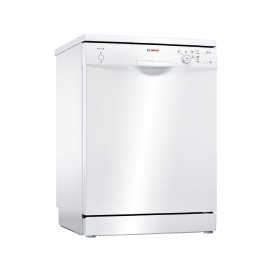
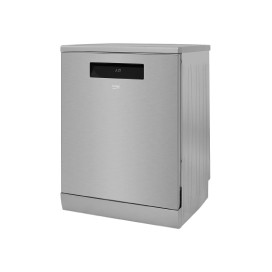
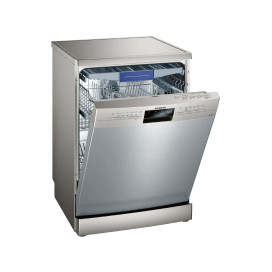
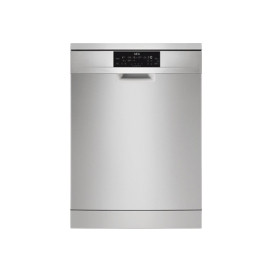
 |  |  |  | |
| Bosch SMS24AW01G | Beko DEN59420DX | Siemens SN236I02MG | AEG FFE83700PM | |
| Type | Freestanding | Freestanding | Freestanding | Freestanding |
| Place Settings (Capacity) | 12 | 14 | 14 | 15 |
| Efficiency Rating | A+ | A++ | A++ | A+++ |
| Wash Programmes | Auto / Eco 50°C / Pre-Rinse / Intensive 70°C | AquaFlex / Auto / Eco / GlassCare / Intensive / Mini / Prewash / Quick & Shine | Intensive 70°C / Automatic 45-65°C / Eco 50°C / Glass 40°C / Quick Wash 45°C / Pre-Rinse | Quick Wash, intensiveZone, Two Zone Programme |
| Cutlery | Cutlery Basket | Cutlery Tray | Cutlery Tray | Cutlery Tray |
| Extra Features | Glass Care System / DosageAssist / Water Management System / Load Sensor / Self-closing Door | AutoDose / HomeWhiz App | Alternating Spray Arms / Delay Start Option / Automatic Detergent Aware / DosageAssist | SoftGrip / Extra Satellite Spray Arm / Auto Half Load |
How to Clean a Dishwasher
Dishwashers can be temperamental beasts, but if you want to keep them in perfect running order, it’s essential to maintain them properly. If you do so, you may well delay the time when a replacement becomes unavoidable, saving hundreds of pounds. Given the pace of change in dishwasher technology, replacements are rarely due to new features or technology. Breakdowns are far more common, but these can often be avoided by treating your device kindly.
The most important of these is to clean your dishwasher regularly. Follow these simple steps to clean your dishwasher properly:
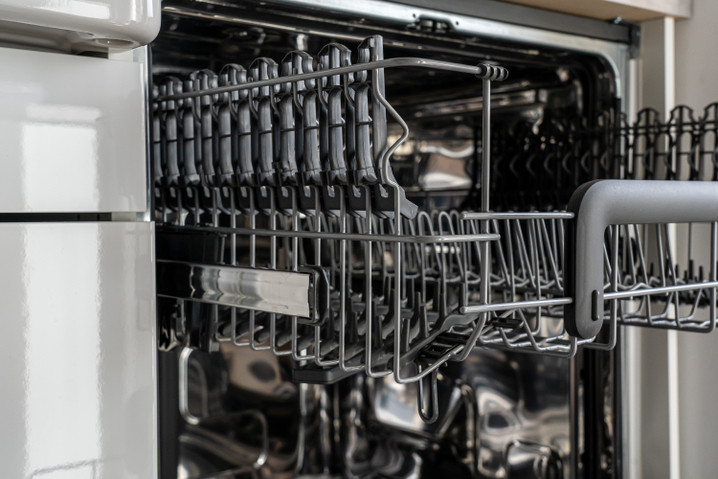
Start off with cleaning the filters. The best way to do so is to soak the filters in warm, soapy water, then replace them in the dishwasher.
Now to clean the machine, put a washing machine cleaner into the machine and run a hot cleaning programme. Bearing all this in mind, it’s vital to buy a good dishwasher cleaner (for the interior), and tablets that correspond to the type of water in your area. You can find popular tablet brands like Ariel, Finish and Fairy from major UK merchants at the hotukdeals dishwasher tablets listings.
If you don't have a washing machine cleaner, pour around 400ml of white wine vinegar into the machine and run it (empty) on its heaviest and hottest setting.
After that, add a little baking soda to the machine, leave it overnight, and then run another cycle. It sounds laborious, but it’s worth it to keep your machine running perfectly.
Now, take a warm damp cloth, and wipe down the inside seals of the machine, where gunk and grime often collects.
Using a different cloth, wipe down the outside and top of the machine.
Your dishwasher should now be sparking!
Dishwasher Accessories
Here are some key dishwasher accessories that you might want to consider buying with your new dishwasher.
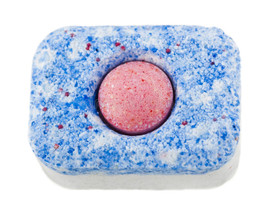
Dishwasher tablets and detergent provide the washing power to the dishwasher. Quality dishwashing tablets will remove stubborn stains and stuck-on dirt, as well as leaving your dishes sparkling. Some dishwasher tablet brands to look out for include: Finish, Ecover, Fairy, and Calgon. Remember to never use washing up liquid in your dishwasher, and also check the environmental impact of the tablet or detergent.
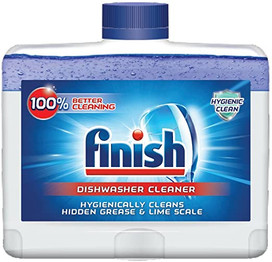
Cleaning your dishwasher regularly is key to keep your dishwasher working properly. The best dishwasher cleaner deals with disinfecting and cleaning as well as descaling any calcium build-up or limescale. Look out for brands such as Finish, Calgon, and Ecozone.
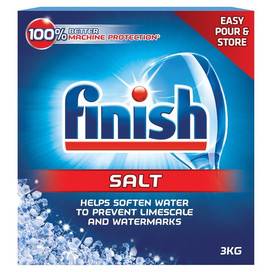
Every dishwasher needs dishwasher salt to function properly. Dishwasher salt prevents limescale build up and boosts performance or dishwasher tablets and detergents leading to shinier and cleaner plates. Adding salt to your machine is particularly important if you live hard water areas. Check out brands from Finish, Ecozone, and Sun Prof.
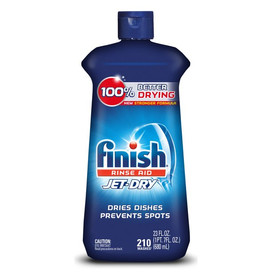
Rinse aid does exactly what it sounds like it does. Rinse aid helps the water rinse of plates and cutlery meaning dishes aren't left with spotting or filming. The liquid also helps dishes dry faster. Quality brands include Finish, Ecover, and Cascade.
Dishwasher FAQs Answered
Although they often come with complex computers to run their various washing programs and schedules, modern dishwashers tend to be fairly simple mechanisms.
Most British models use either two or three spraying arms to distribute pressurised water across the inside of the dishwasher. These arms are situated on the base of the unit, at the top and at the back, allowing manufacturers to retain the central space for shelves and removable compartments.
Items placed inside the dishwasher are then cleaned by a combination of the high pressure heated water supplied by these jets, and detergent tablets placed inside the unit.
In addition, most dishwashers feature devices that evacuate dirt and food particles from the inner chamber, increasing the efficiency of the device. Some even have the ability to sense the quantity of dirt on the dishes placed within the chamber, modulating the amount of water and washing time to suit the load – although these tend to be higher-end models.
Most devices also have drying phases, which relies on heat from the dishwasher itself, rinse-aid chemicals or fans – depending on the model in question.
All manufacturers recommend using dishwasher salt, particularly in areas with hard water, as the salt helps to soften the water and prevents limescale build-up
Each manufacturer will specify how hot the water input must be, but most use cold water that is then heated up in the machine itself.
The idea of using electricity to power cleaning brushes and heated detergent isn’t a new one. In fact, the first dishwasher patent was filed in America in the 1850s (although in that case, the power would have been supplied by a hand crank).
It took seventy years for the first economically viable and effective electric dishwashers to come onto the market, with manufacturers like Miele leading the way in the 1920s.
As more houses acquired heated water and the cost of heating fell, mass production commenced. After World War II, people started to demand more convenience. They wanted devices that would cut the time consumed by housework, leaving more time for leisure. Gradually, dishwashers became a standard feature of European and American kitchens, up to the present day when around 80% of homes have (at least) one installed.
Dishwasher aren't generally designed to sterilize, but some have sanitize settings that will help to kill off e-coli and other bacteria. You can also buy disinfectant cleaning tablets for dishwashers, but be careful with what you use and make sure dishes are properly rinsed before using them.
Modern dishwashers are energy efficient and don't use that much energy in comparison to other household appliances. The average machine uses around 1.5kWh to clean a load of dishes of 12 place settings, which roughly works out as 20p per load depending on your electricity costs.
Choosing the Right Dishwasher for Your Home
By now, you should have a much better idea of what buying a dishwasher is all about, but it’s always worth taking stock. Here’s what you need to remember when browsing the dishwasher listings:
Buy a dishwasher that has enough capacity for your family, and maybe a little bit more, but always aim to run the device at full capacity. Don’t end up with a massive device that is always empty, as this will cost you money in the long-run.
Make a decision about whether to go for a high-end, technologically advanced model or a less efficient budget version. Remember, the differences are not dramatic, but the range of features and steel basins of higher-end models might be the deciding factor.
Efficiency varies, and superficially attractive deals can look a lot less appealing when you work out the running costs of a dishwasher over a matter of years.
Integrated dishwashers are a great idea for people who intend to stay out for a decade, but with a freestanding model, you will have more flexibility, being able to take your machine with you to your next property.
Treat your dishwasher well, and it will reward you with years and years of efficient cleaning, low operating costs and no need to pay exorbitant repair or replacement costs.
How and When to Make Dishwasher Deals
Whether you are going for a tiny worktop dishwasher or a souped-up technologically advanced integrated monster, you should be able to find deals that undercut face value prices, so always shop around.
When you are buying a dishwasher, the hotukdeals dishwasher listings are the obvious place to start your search. You’ll find all of the world’s major dishwasher brands represented, including Miele, Bosch, Samsung and Whirlpool. You’ll also find deals from famous UK white goods retailers like Currys, Tesco, Argos and John Lewis. Even better, our users regularly post deals for vital dishwasher accessories, like tablets from Aldi, Sainsbury´s, Tesco or Asda.
Have a look at online sellers as well. Amazon is a surprisingly good place to hunt for cheap dishwashers and tablets. The important thing is to widen your options as much as possible, and there’s no better place to do so than HotUKDeals.
There are also some good times of year to focus your search. In November, Black Friday tends to see white goods retailers tabling some incredible discounts, as do the January Sales. But you can never tell when big brands will be reduced. All you can do is bookmark hotukdeals and keep track of the discounts as they emerge.
The Cheapest Dishwasher at hotukdeals
Having the right dishwasher is vital for home owners these days. Dishwashers have become an integral part of everyday life, and when they break down the consequences can be dire. Find the perfect model for your needs by checking out the hotukdeals dishwasher listings, where you’ll find the world’s leading dishwasher brands, from the UK’s leading white goods retailers.

